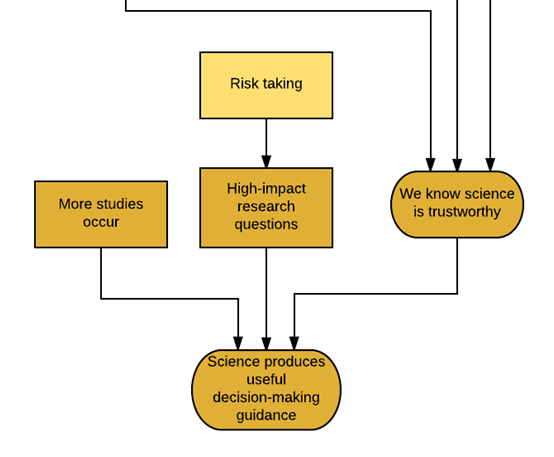We ought to consider an entity’s right to wellbeing not exclusively on the basis of its individual characteristics, like ability to feel pain, but also on its attributes relative to other beings".
Read MoreWe must consider the background factors that influence every decision.
Read MoreI can’t say here was ever really an “ah-ha” moment, rather, there was a causal and gradual change of sentiment.
Read MoreAlthough much of EA is based on a calculation as it applies to the general population and the general good, there are times that EA decisions have to be made and understood in the context of the individual.
Read MoreJoshua Greene is a professor in the Harvard Department of Psychology where he runs the Moral Cognition Lab. He received his bachelor’s degree from Harvard and then a PhD in philosophy at Princeton where he was mentored by many bright lights of analytical philosophy, including Peter Singer, who served on his committee. After doing a post-doc in a a cognitive neuroscience lab, Greene returned to Harvard to begin his own lab, the Moral Cognition Lab, which studies both descriptive and normative psychology and philosophy.
Read MoreWhat can universities do to empower student change-makers to address major global challenges? In this report, we develop the outline of a program that can deliver tools to students change-makers through different channels, including a full syllabus for a course on Effective Altruism.
Read MoreWe analyzed climate change from a high-level perspective, exploring various potential philanthropic interventions: Direct emissions reductions, adaptation, R&D, advocacy/litigation, and climate finance. We recommend fighting coal power in asia, building capacity in the US at local levels, and investing in innovative climate finance models.
Read MoreIn this report, we considered four broad interventions: post-publication peer review, quantitative metrics for transparency (e.g. “transparency index”), tenure criteria, and characterizing dependency relationships between pieces of research. All of these categories can be implemented in different ways, and can improve reproducibility through multiple channels.
Read MoreThis Philanthropy Advisory Fellowship report identified innovative approaches and organizations in the Water, Sanitation, and Hygiene (WaSH) space. This research was conducted on behalf of PAF client Draper Richards Kaplan Foundation, combining scientific evidence on the most effective approaches with the unique demands of the client's venture philanthropy model.
Read MoreAlthough traditionally mental health has not been considered an immediate cause for concern in Sub-Saharan Africa, it is increasingly receiving more attention as the extent in which people suffer from various disorders has become apparent. Within this report, our team seeks to quantify and analyze the burden of mental health disorders in the region, estimate the cost-effectiveness of various interventions, recommend local organizations that are taking a scientifically-sound, scalable approach, and recommend promising research opportunities to develop new, highly cost-effective and scalable interventions.
Read MoreThe Philanthropy Advisory Fellowship (PAF) recruits Harvard graduate students from across the University to form multidisciplinary teams that advise philanthropists or foundations on how to achieve the most impact with their charitable dollars in a given cause area. Although we just started last semester, we have gotten off to a good start with major donors on board as clients and a competitive application process attracting talented Fellows.
Read More
This is the Executive Summary of the final report from a Philanthropy Advisory Fellowship project on advising corporate philanthropy program. The PAF team has identified 13 charities as potential [program] partners. Of the 13 charities, 11 focus on poverty, one on diversity and one on violence.
Read MoreThis is the Executive Summary of the final report from a Philanthropy Advisory Fellowship project on Gene Drive research. The purpose of this report is to provide recommendations to philanthropists interested in funding a new genetic technology called “CRISPR gene drive.” This synthetic biology technology allows scientists to design genetically modified animals that can rapidly spread particular genes through wild populations.
Read More











